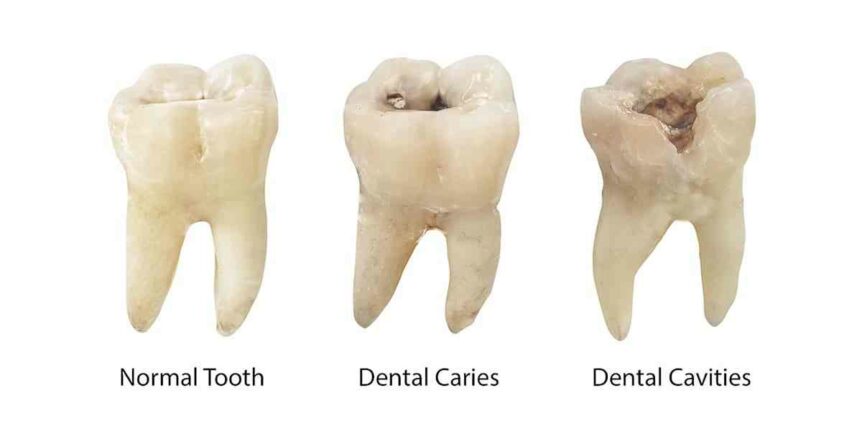What Are Dental Crowns?
Dental crowns are custom-made, crafted caps put on damaged or weak teeth to repair their strength, shape and appearance. If your tooth is chipped, cracked or decayed, as well as discolored, a dental crown can provide complete coverage and durable protection.
They’re among the most dependable dental restorative solutions in the present, widely used to enhance both the functionality and appearance of your smile.
When Do You Need a Dental Crown?
You might require dental crowns if you’re suffering from any of the following problems:
- A broken or cracked tooth
- One tooth which has been treated with the procedure of a root canal
- Dental decay that isn’t fixed by a filling
- A huge filling that weakens the tooth that is left
- A discolored or distorted tooth
- To anchor a dental bridge
- To cover a dental implant
If not treated If left untreated, the conditions may worsen which can lead to discomfort, infection and the loss of teeth.
Types of Dental Crowns
There are a variety of crowns that are suited to different dental requirements and goals:
1. Porcelain Crowns
Porcelain crowns are well-known for their natural appearance and natural appearance, which makes them a great choice as a front tooth replacement. They resist staining and can be colored to match your existing teeth.
2. Porcelain-Fused-to-Metal (PFM) Crowns
They blend the strength and durability of metal with the beauty of porcelain. They’re strong and cost less however they may display a metal line on the gum as time passes.
3. Zirconia Crowns
Very durable and pleasing to the eye zirconia crowns are gaining in popularity because of their wear resistance and compatibility with your body.
4. Gold or Metal Crowns
Crowns made of gold are strong and last for a long time, which makes them ideal for the molars. However, they’re typically not recommended in front teeth because of aesthetic reasons.
5. E-max Crowns (Lithium Disilicate)
They are known for their strength and beauty. for patients seeking natural-looking and durable restorations.
Benefits of Dental Crowns
Dental crowns can provide a myriad of advantages that go beyond simply improving your smile
- Enhances strength and function chewing and biting
- Improves appearance by covering misshaped or stained teeth
- Protects against further damage to weak teeth
- Lasting results, with crowns lasting for 10 years or more when properly cared for
- Natural and comfortable fit customized to fit your mouth
- Helps to support adjacent teeth, particularly in bridges and implants.
The Dental Crown Procedure: What to Expect
What can you expect from your crown procedure, which is typically done in two visits:
First Visit: Tooth Preparation
- The dentist inspects and prepares the tooth by taking out decay and shaping it.
- The impressions are then send to a dentist laboratory to create your customized crown.
- An interim crown will be put in place to safeguard the tooth.
Second Visit: Crown Placement
- The crown that was temporary is taken off.
- Permanent crowns are examined for color, fit, and bite.
- Once it has been approved, it can be permanently fixed in the ground.
In certain practices using CEREC technology crowns can be made the same day which allows all procedures to be completed in one appointment.
How Much Do Dental Crowns Cost?
The price of dental crowns may vary depending on:
- The materials employed (zirconia, gold, porcelain, etc.)
- The Dental clinic is located in the same location.
- The difficulty of treatment
- What if additional procedures, such as root canals are required
Cost of living of living in U.S.:
- Porcelain-fused-to-metal: $800-$1,400
- All-porcelain or all-ceramic: $1,000-$1,600
- Gold crowns: $1,200 – $2,500
- Zirconia crowns: $1,200-$2,000
Although dental insurance typically covers a portion of the cost when it’s medically required, cosmetic crowns might not be covered. Always consult your insurance dentist prior to making any decisions.
How Long Do Dental Crowns Last?
When you take care of your oral hygiene and regular dental checks Crowns for dental use can last between 10 and 15 years or more. Factors that impact their lifespan include:
- Your routine for oral hygiene
- Avoiding hard foods and grinding your teeth
- Regular dental visits
- The material that is used for the crown
Taking Care of Your Dental Crown
Keep your crown good form:
- Cleanse and brush daily
- Use a non-abrasive toothpaste
- Beware of chewing on ice or hard objects
- Wear a nightguard in the event that you grind your teeth.
- Visit your dentist at least every six months for exams and cleanings.
Why Choose a Professional for Your Dental Crowns?
All crowns are not created in the same way. A trained dental professional can ensure:
- A perfect fitting for comfort and durability
- Natural aesthetics through color-matching
- Dental health expertly assessed by a specialist. health
- Technology advancements for more efficient outcomes
- Sanitary and safe procedures
Clinics such as Presidio Dental in San Francisco offer the latest technology with patient-focused treatment, providing crown restorations that are beautiful and long-lasting.
Final Thoughts
Dental crowns can be a great long-term solution for those who is struggling with broken, weak or unattractive teeth. Today’s technology and materials crowns feel and look exactly like natural teeth, giving your confidence in smiling once more.
If you’re having dental issues or are considering cosmetic enhancements do not put off the process. A consultation with a reputable dental expert can help determine your options and help you make your smile look better with care and precision.









